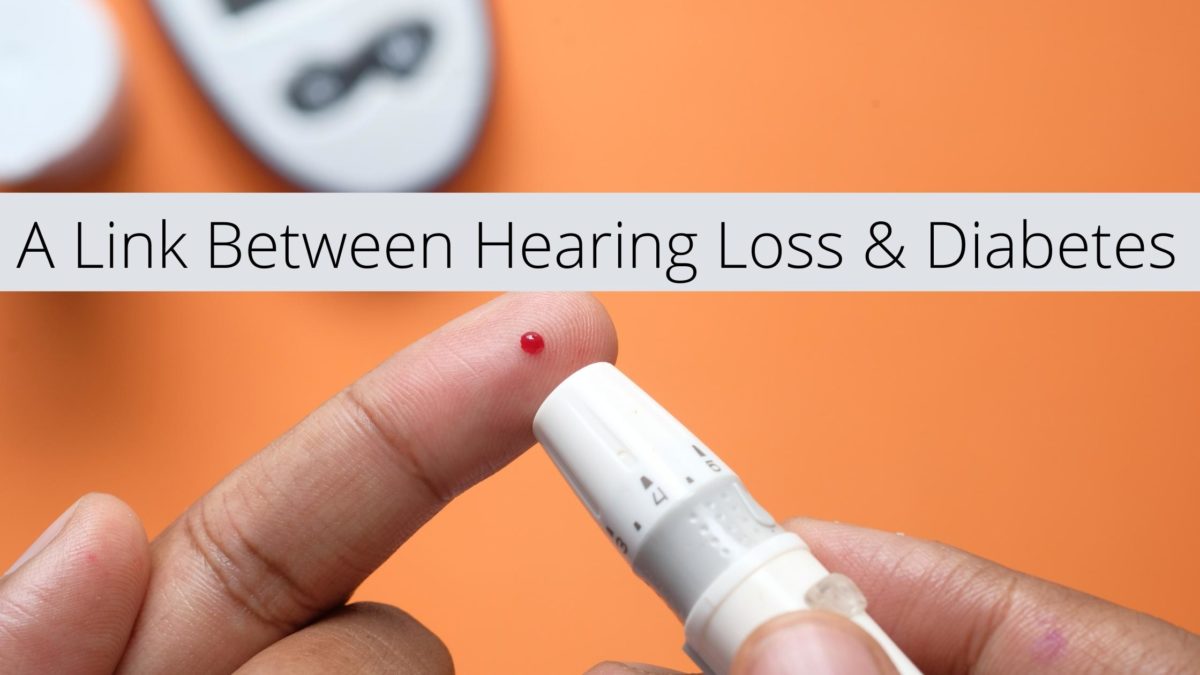
A Link Between Hearing Loss & Diabetes
When you go through the list of health concerns associated with diabetes, hearing loss probably isn’t the first one that pops into your mind. However, there is a link between hearing loss and diabetes, and it’s not just that they are both leading chronic health issues for people in the United States.
At the Henry Ford Hospital in Detroit, a study was conducted using a group of women over 60 years old. Of participants, data showed that hearing loss was present more often in women with both Type 1 and Type 2 diabetes, versus participants without diabetes.
How might diabetes impact hearing function?
One reason that hearing loss might be more common in people with diabetes is because dangerously high blood sugar levels may impact the health of those cells found in the middle ear. These cells are incredibly important and integral to the hearing process. Low blood sugar can also damage cells over time by damaging the path used by nerve cells to transfer sound to the brain.
Monitoring and controlling your diabetes may help to prevent this damage.
How does hearing loss work?
Hearing loss with a later-in-life onset, particularly age-related hearing loss or noise-induced hearing loss, is most often caused by damage to those important inner ear cells. We think that diabetes contributes to this cell damage, but what are the impacts of this damage?
The outer ear acts as a collector of sound information, but much of what we consider hearing happens deep inside. The delicate cells of the inner ear receive the information and transmit it to the brain via the auditory nerve.
When those cells of the middle ear are damaged — like they might be from persistent high blood sugar levels —they do not repair themselves or regenerate. The effect is that we simply transmit less sound information to the brain. This is experienced as hearing loss.
Similarly, if the pathway of that sound information to the brain is obstructed or challenged — as it could be by ongoing low blood sugar levels — the brain will ‘hear’ less.
Symptoms of hearing loss
Hearing loss can be difficult to self-diagnose, partially because the early signs can be very subtle. It often begins to seem as if everyone around you is mumbling. Perhaps your phone calls become a series of ‘What? Speak up!’
It’s not an overall lowering of the world’s volume, instead, we lose high frequency sound first. So, words and dialogues are the first and most noticeable consequence of that loss.
Unfortunately, like diabetes, the consequences of untreated hearing loss will often bleed into other areas of life, causing further complications. People with untreated hearing loss are at a greater risk for social isolation, anxiety and depression.
Ways to manage diabetes
Of course, managing diabetes can help you minimize its impact on your hearing health. The first step is a diagnosis, and if you haven’t been diagnosed with diabetes but suspect that you have the condition, see a medical professional immediately. They can help you by prescription medications that will aid you in controlling blood sugar. They’ll also be able to give you more information on managing your condition.
In addition to medications, diabetes can be managed with a healthy diet and nutritional guidance. Regular exercise, rest, and stress management are all ways you can help your body stay healthy despite a diagnosis of diabetes.
Hearing aids can help
It may be that diabetes, aging, or exposure to too-loud noise has already impacted your ability to hear easily. Luckily, we live in a world that contains hearing aids. Even if you are experiencing some degrees of hearing loss, there are proven interventions available to you. Most hearing aid wearers are happy with their investment and would recommend getting hearing aids to a friend with hearing loss.
Schedule a hearing consultation today
Schedule a hearing consultation with us today. Our team of hearing health professionals can guide you through the process of a simple hearing exam and walk you through your results. If necessary, we can begin to explore treatment together. Or, we can just get you started in the very good habit of monitoring and proactively taking an interest in your hearing health.
